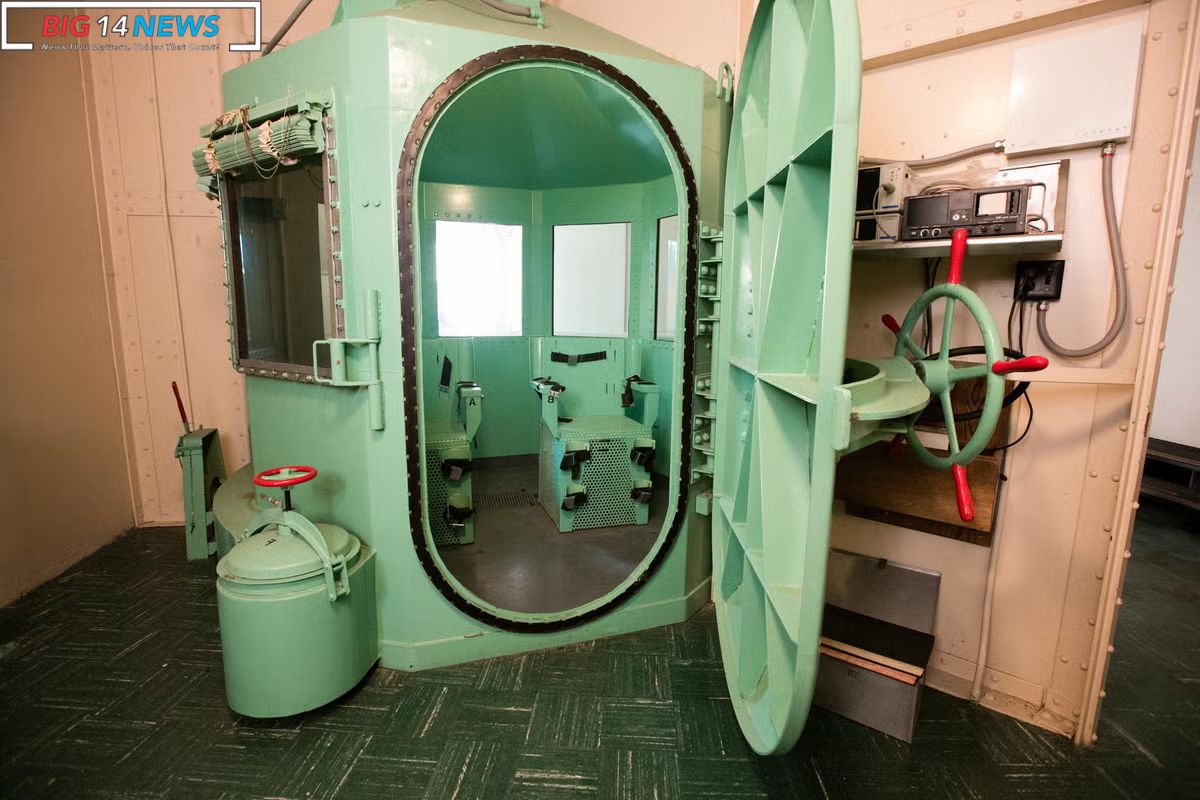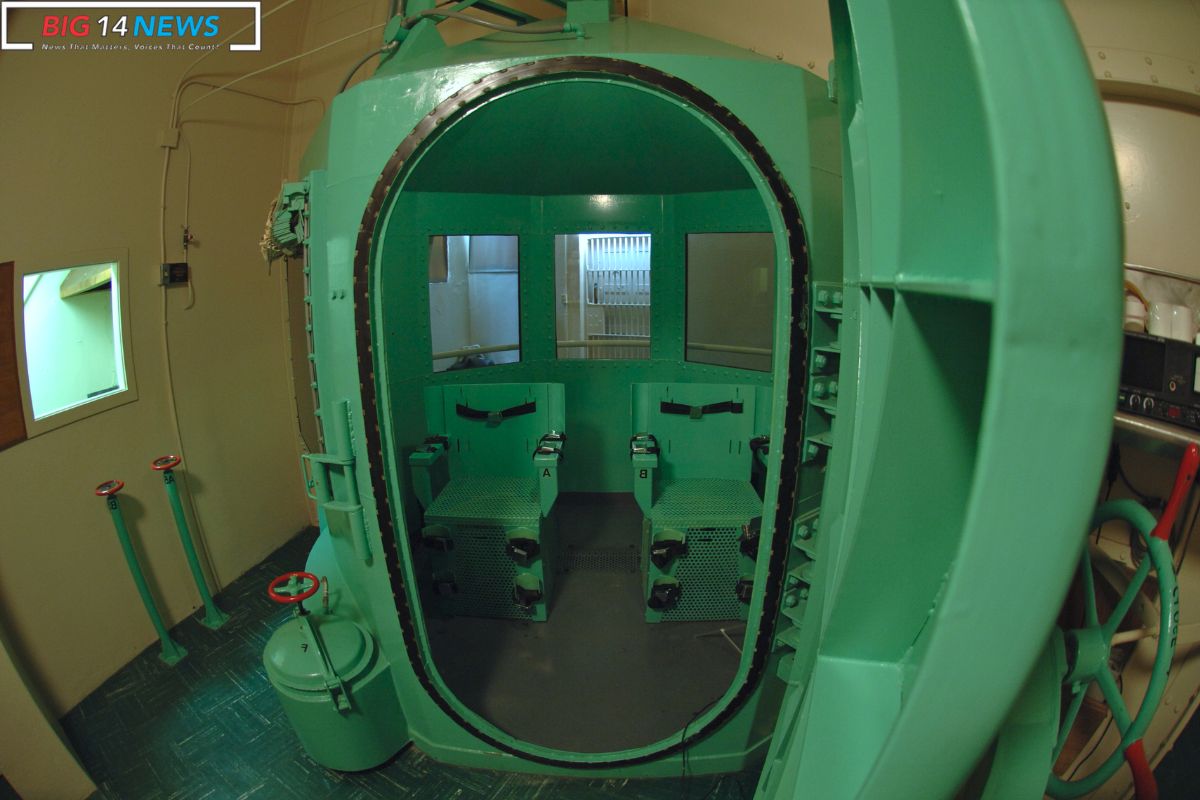Alabama January Execution Gas Chamber: In a controversial move, Alabama has chosen to utilize the gas chamber as a means of execution, sparking concerns regarding both the safety and ethics of this method. This decision comes after a failed attempt at lethal injection, prompting the shift to nitrogen hypoxia.
Legal and religious challenges have also emerged, with Reverend Jeff Hood filing a lawsuit against the state. As questions surrounding the risks and transparency of this execution method persist, the need for a thorough examination of its implications becomes paramount.
Key Takeaways
- Safety concerns and criticisms surrounding the use of nitrogen gas in executions due to lack of historical data and scientific research.
- Ethical implications and legal challenges raised by the use of the gas chamber, including concerns about violations of religious liberty and the constitutionality of the method.
- The decision to shift to nitrogen hypoxia after a failed lethal injection attempt, with concerns about the lack of scientific research and potential for botched executions.
- Lack of transparency in Alabama’s execution method, undermining public trust and accountability, and raising concerns about potential risks and inhumane treatment.
Unprecedented Execution Method: Alabama’s Nitrogen Hypoxia Decision
The decision to employ Alabama’s unprecedented method of nitrogen hypoxia for the January execution raises numerous safety and ethical concerns.
Nitrogen hypoxia involves the administration of pure nitrogen gas to induce death by oxygen deprivation. While this method has been lauded as a more humane alternative to lethal injection, its use in an execution setting is uncharted territory in the United States.
Critics argue that the lack of historical data and scientific research on nitrogen hypoxia’s efficacy and potential risks makes it an unreliable and potentially dangerous method. Furthermore, the secrecy surrounding the development and implementation of this execution method raises questions about transparency and accountability.
Without proper scrutiny and oversight, there is a risk that the use of nitrogen hypoxia could result in unnecessarily prolonged, painful, or botched executions. The ethical implications of using a method with unknown consequences on a human being cannot be understated, making it imperative that thorough investigations and safeguards are in place before proceeding with this unprecedented execution method.

READ MORE: Federal Judge Recommends Alterations to Nitrogen Hypoxia Execution Protocol
Failed Lethal Injection Attempt: Shift to Nitrogen Hypoxia
After a failed attempt at lethal injection in November 2022 due to the absence of a suitable vein, the state of Alabama made the decision to shift to nitrogen hypoxia for the January execution. This alternative method involves the individual inhaling pure nitrogen gas, leading to oxygen deprivation and ultimately causing death.
While the use of nitrogen hypoxia in executions is relatively new, it has gained attention as a potential alternative to traditional lethal injection methods. Proponents argue that nitrogen hypoxia is a more humane and painless method, as it induces a state of euphoria and unconsciousness before causing death.
However, critics raise concerns about the lack of scientific research and the potential for botched executions. The shift to nitrogen hypoxia raises important questions about the safety, efficacy, and ethics of executing individuals using this method.
As Alabama prepares for the January execution, the implications and consequences of this decision demand careful examination.
Legal and Religious Challenges: Reverend Jeff Hood’s Lawsuit
Reverend Jeff Hood’s lawsuit challenges the use of the gas chamber in Alabama’s January execution, citing violations of religious liberty and raising important legal and ethical questions.
The lawsuit argues that the restrictions placed on the gas chamber protocol violate the First Amendment rights of the condemned and their spiritual advisors. By denying the use of a spiritual advisor of their choice during the execution, the state of Alabama is infringing upon the religious freedoms of those facing the death penalty. This raises significant concerns about the constitutionality of the gas chamber as a method of execution.
Moreover, the lawsuit also brings to light broader ethical questions surrounding the use of the gas chamber in executions. Is this method of execution humane? Does it comply with the evolving standards of decency? These are crucial questions that need to be addressed in the context of the ongoing debate on capital punishment.

Safety Concerns and Criticisms: Risks of Nitrogen Gas
Concerns about the safety and ethics of using nitrogen gas in Alabama’s gas chamber execution have been raised by experts in the medical and legal fields. Physicians, such as anesthesiologist Joel Zivot from Emory University Hospital, have expressed worries regarding the potential risks associated with this method. Critics argue that the lack of transparency and information about the effects of nitrogen gas on the human body highlights inadequate preparation for the execution and potential threats to workers nearby.
To better understand the risks and concerns surrounding the use of nitrogen gas, let’s examine a table that outlines some of the potential dangers:
| Risk | Description | Potential Consequences |
|---|---|---|
| Lack of oxygen | Nitrogen gas displaces oxygen in the air, leading to oxygen deprivation. | Loss of consciousness, brain damage, and death. |
| Inadequate training | Insufficient training for execution teams may lead to errors. | Prolonged suffering and botched executions. |
| Unknown long-term effects | Limited research on the long-term effects of nitrogen gas exposure. | Potential health risks for execution personnel. |
| Ethical implications | The use of nitrogen gas raises ethical questions about humane executions. | Violation of constitutional rights and principles. |
These concerns highlight the need for thorough research, transparent information, and proper training to ensure the safety and ethicality of any execution method involving nitrogen gas.
Lack of Transparency: Alabama’s Execution Method Scrutinized
The lack of transparency surrounding Alabama’s execution method has sparked scrutiny and raised questions about the safety and ethics of the gas chamber. Critics argue that the state’s refusal to disclose detailed information about the process undermines public trust and accountability. Without transparency, it becomes difficult to assess the potential risks and ensure the humane treatment of individuals being executed.
The chosen method of execution, nitrogen gas, has also faced significant criticism due to its lack of testing and potential for botched executions. Death penalty attorney Robert Dunham highlights the importance of transparency in ensuring proper safety precautions and avoiding cruel and unusual punishment.
The lack of openness in Alabama’s execution method not only raises concerns about the potential for harm, but also calls into question the ethical implications of conducting executions behind closed doors.

Conclusion Of Alabama January Execution Gas Chamber
Alabama’s decision to use the gas chamber as an execution method raises significant questions of safety and ethics.
The shift to nitrogen hypoxia following a failed lethal injection attempt has come under legal and religious challenges, with Reverend Jeff Hood filing a lawsuit. Critics have raised concerns about the risks associated with nitrogen gas, and there is a lack of transparency surrounding Alabama’s execution method.
These issues highlight the need for a thorough examination of the safety and ethical implications of capital punishment.
Also Read: Ramaswamy Unraveling the Inaccuracy of Democratic Party Claims
Our Reader’s Queries
Is nitrogen hypoxia painful?
A team of experts at the United Nations expressed worries that nitrogen hypoxia may lead to a distressing and degrading demise.
What method of execution is used in Alabama?
Alabama only allows lethal injection as a method of execution, as stated in Neb. Rev. Stat. Ann. § 83-964. Electrocution used to be the sole method until it was ruled unconstitutional by the Nebraska Supreme Court in February 2008. In May 2009, the Nebraska Legislature approved lethal injection as the new method. In Nevada, there are 67 authorized methods of execution.
Who was the last person to be executed by gas chamber in the United States?
In 2020, the most recent case of a person being put to death in a gas chamber was Walter LaGrand, a German citizen who was sentenced to death before 1992. His execution took place in Arizona on March 3, 1999.
When was the last electric chair execution in Alabama?
In 2002, Alabama carried out the electrocution of Lynda Lyon Block, marking the final instance of someone being put to death in this manner without choosing it in the state.

